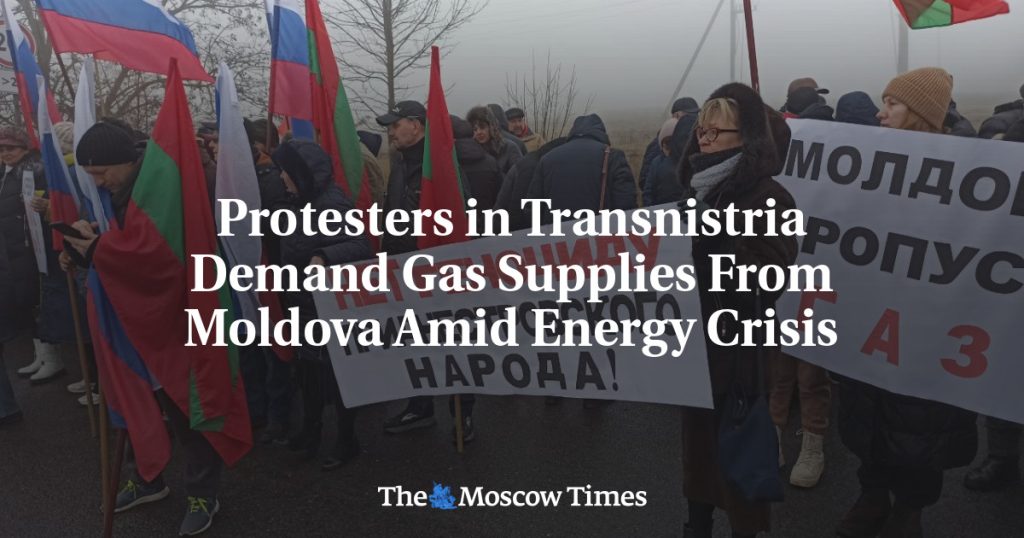Summarize this content to 2000 words in 6 paragraphs
Protests erupted across Transnistria on Friday, with residents of the Moscow-backed separatist region demanding Moldovan authorities provide gas supplies amid an ongoing energy crisis.
Russia’s Gazprom halted gas supplies to Transnistria on Jan. 1, citing a $709-million debt dispute with Moldova. The Kremlin blamed Moldova and Ukraine for the disruptions, which have left around 400,000 residents without heating or hot water.
Moldova, in turn, accused Russia of orchestrating a humanitarian crisis in the predominantly Russian-speaking region to destabilize the country.
A potential resolution emerged after Transnistria’s Kremlin-backed leader, Vadim Krasnoselsky, visited Moscow and reached an agreement to purchase “humanitarian” gas supplies from Moldovagaz. However, the Kremlin claimed logistical issues from Moldova were hampering deliveries.
news
‘Everything Depends on Moscow’: In Separatist Transnistria, Residents Await End to Sweeping Energy Crisis
Read more
Protesters in at least three cities called on Moldova to allow Russian gas transit into the region.
“This is simply a genocide of the entire population of Transnistria,” one protester said during an interview with local media.
Demonstrators chanted, “Moldova, let the gas in!” and held signs reading, “No to the genocide of the Transnistrian people!”
Moldova’s government spokesman accused Transnistria’s pro-Russian leadership of organizing the rallies.
As protests continued, Krasnoselsky told Russian state television that Transnistria had only two days’ worth of gas reserves remaining.
Transnistria, which declared independence after the Soviet Union’s collapse, is internationally recognized as part of Moldova but relies on Russian military and financial support. Approximately 1,500 Russian troops remain stationed in the region.
A Message from The Moscow Times:
Dear readers,
We are facing unprecedented challenges. Russia’s Prosecutor General’s Office has designated The Moscow Times as an “undesirable” organization, criminalizing our work and putting our staff at risk of prosecution. This follows our earlier unjust labeling as a “foreign agent.”
These actions are direct attempts to silence independent journalism in Russia. The authorities claim our work “discredits the decisions of the Russian leadership.” We see things differently: we strive to provide accurate, unbiased reporting on Russia.
We, the journalists of The Moscow Times, refuse to be silenced. But to continue our work, we need your help.
Your support, no matter how small, makes a world of difference. If you can, please support us monthly starting from just $2. It’s quick to set up, and every contribution makes a significant impact.
By supporting The Moscow Times, you’re defending open, independent journalism in the face of repression. Thank you for standing with us.
Continue
Not ready to support today? Remind me later.
×
Remind me next month
Thank you! Your reminder is set.
We will send you one reminder email a month from now. For details on the personal data we collect and how it is used, please see our Privacy Policy.


